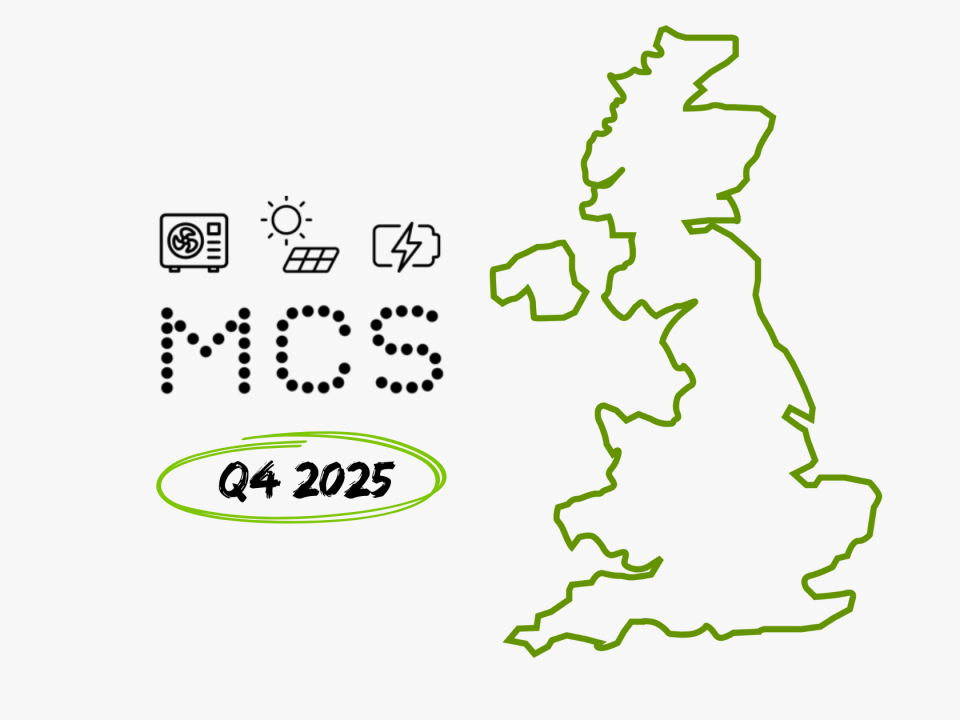
An Analysis of the Latest MCS Data
August 5, 2024
How to Offset Costs in Light of the Energy Price Cap Rising
September 11, 2024Some Context:
Last week, I had the pleasure of undertaking BPEC’s Air & Ground Source Heat Pump Systems Course with Dean (defined scope – don’t worry I won’t be installing them anytime soon.) In this week’s blog, I will reflect on my experience, and explore my key takeaways on the future of the industry. Before I begin, I want to say a big thank you for such an accommodating group last week, was great to meet you all, and of course to our excellent Training Director Dean for having me.
First, some context on why I sat the course, and some exciting new developments at GRE. As the heat pump market continues to grow, companies will increase in size and will require heat pump training for non-technical operatives as well as technical. This has already been seen within the electrical side of the renewable industry, and is why we have a Solar PV & Battery sales course. In this spirit, we are looking to develop a sales course for heat pumps, that will aim to take more non-technical operatives through how the systems work, and how to correctly and ethically sell them.
Course Overview:
Going into the course as a non-technical operative was a little intimidating I must admit, however the course is broken down into digestible sections, so even myself who is far from a plumbing/heating or gas engineer could follow along. The course covers absolutely everything you will need to know as an installer, from thermodynamics, rad sizing, flow rates, and of course heat pump systems themselves. The course is in alignment with MCS I & D (installation and design) however covers commissioning and servicing of the systems extensively.
Perhaps one of the most daunting elements for any candidate sitting a course is the exam process, however there really is no need to worry in this case. Without spoiling too much, you will be faced with 4 multiple choice exams, and a practical fault finding exam. All of these are done incrementally, and therefore you can digest the content and spit it back out in steps, rather than all at once. It is also important to note that the exams are open book, so you can utilise your trusted BPEC Installer Manual (which you will also be able to keep after the course.)
In terms of class size and interactivity, last week saw the course at full capacity, and despite this every voice in the room felt heard. Dean does a great job of keeping it interactive, and avoids monotonous slide reading, relating the theory to anecdotes from both himself and members of the group. This results in a breadth of real life scenarios, from many different background, which again make all of the theory very digestible.
Theory is all well and good, but I know what you all really want is some hands on experience. Well you’re in luck, and whilst this course is heavily classroom based it has a practical fault finding exam, and also includes visits to our work shop where a working heat pump system is used to demonstrate the theoretical elements. In addition, Dean’s classroom is set up with a variety of systems, and plumbing ‘whatsamajigs’ that are again used to demonstrate and reinforce the theory being taught.
In summary, the course provides an exciting learning environment, that encourages candidates to interact, and combines practical and theoretical elements to ensure you have a deep understanding of all the components of the systems. Our rendition of the course also emphasises the design elements, which is an integral part in the efficiency of the systems, despite this not being a necessity we believe it is imperative that candidates learn about it before venturing into the world of heat pump installations.
Future of the Industry & Current MCS Data:
After sitting on the course, it was apparent that heat pumps are not going anywhere, and the technology has come a long way in the past decade, with more manufacturers backing the systems and introducing their own. However, It was also made clear that we are still in the early stages of the adoption curve for the technology, and a lot of work is needed for the market to get to where it needs to be (that’s where you come in.) The latest MCS data shows a slight plateau of installations in 2024, with the curve reaching its peak in May with 4925 MCS installations (all heat pump types) and dropping off in August (3838 MCS installations.) Overall, 2024 has seen 35,451 MCS installations of all heat pump system types, and is therefore still on track to trump the previous year (39,270 in total.) This plateau can be attributed to a variety of political and economical factors, which we will touch upon in a future blog. Despite this, things are still looking positive for the market, and with the persistent push from the government, manufacturers and associations, now is as good a time as any to get involved in the industry (especially when you can save 500 quid.)
Have I convinced you? Good, we still have £500 heat pump training vouchers left which make the above course just £295 + VAT. Click here to view the course, or get in touch for honest advice on which course is right for you and your team on 01246 588589.
You can also view the latest MCS data for free by clicking here.




